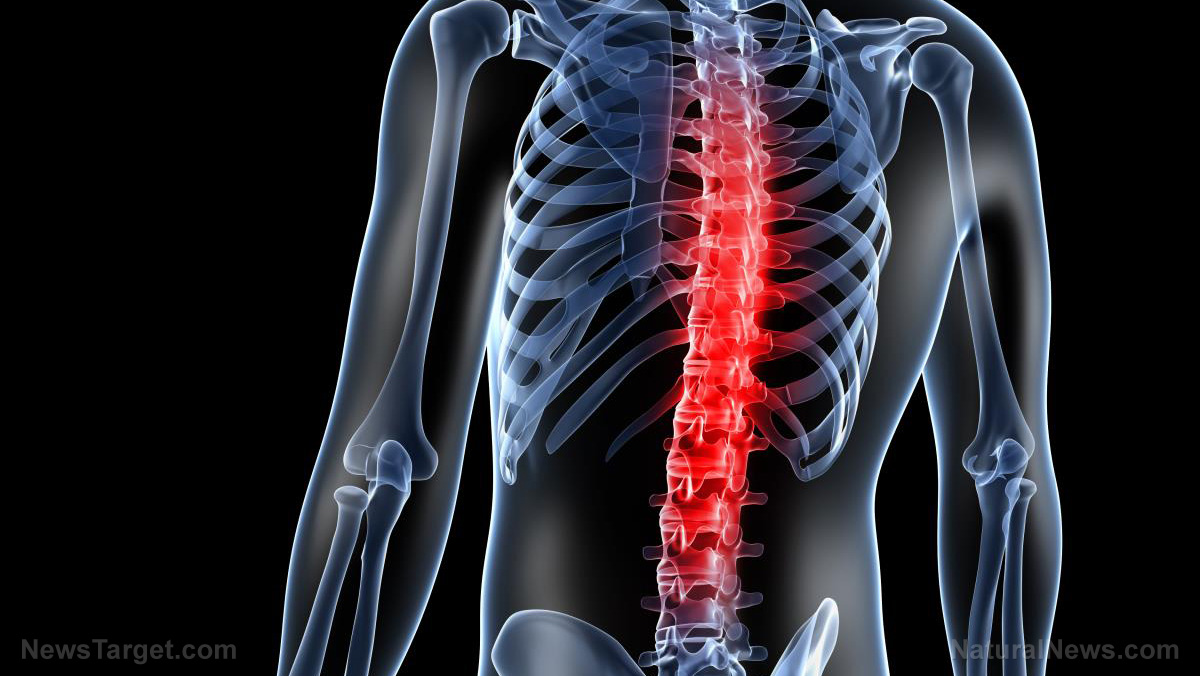Study: Lithium microdosing may benefit patients in later stages of Alzheimer’s disease
03/05/2021 / By Michael Alexander

As it turns out, even microdoses of lithium can help stave off Alzheimer’s.
A recent study found that concentrations of lithium hundreds of times lower than what doctors usually prescribe for psychiatric conditions such as bipolar disorder can benefit those in the later stages of Alzheimer’s disease.
According to Claudio Cuello of the Department of Pharmacology and Therapeutics at McGill University in Canada, their research hinged on the findings of a previous study, which revealed that lithium microdosing was beneficial to rats showing early signs of the disease.
“They stimulated us to continue working with this approach on a more advanced pathology,” Cuello, who also led that earlier study, said.
As detailed in the Journal of Alzheimer’s Disease, Cuello’s research team administered the same microdose used in the earlier study to transgenic rats at the equivalent of late preclinical stages of Alzheimer’s disease in humans.
At this post-plaque stage, the research team said, the beta-amyloid had already accumulated to such an extent that it had started to affect cognition.
As per experts, beta-amyloids are amino acids that are the main component of the plaques found in the brains of individuals afflicted with Alzheimer’s disease. (Related: Study: Lithium treatments found to stabilize the memory of patients with Alzheimer’s disease.)
According to the researchers, the rats took the lithium NP03 for 12 weeks, with the effects on rats’ working memory assessed remotely by the researchers using the novel object recognition test.
Cuello and colleagues also examined markers of neuroinflammation in the rodents’ brains, such as oxidative stress and beta-amyloid levels.
According to the study authors, what they found was that lithium NP03 helped rescue functional deficits in object recognition, as well as helped reduce levels of soluble and insoluble cortical beta-amyloid in the brain and even helped lower the number of plaques in the hippocampus.
These results, the research team said, indicate that microdosing lithium NP03 is effective at later stages of amyloid pathology, even after the appearance of beta-amyloid plaques.
Cuello, in a statement, noted that while it is unlikely for lithium NP03 microdosing to revert the brain damage at the clinical stages of Alzheimer’s, it remains possible that microdoses of encapsulated lithium should have tangible beneficial effects at early, preclinical stages of the disease.
Cuello is hopeful that the team’s findings will soon translate into clinical trials, either testing NP03 with other drug candidates or testing it in populations at high risk of Alzheimer’s or adults who already have preclinical Alzheimer’s.
“From a practical point of view, our findings show that microdoses of lithium in formulations such as the one we used, which facilitates passage to the brain through the brain-blood barrier while minimizing levels of lithium in the blood, sparing individuals from adverse effects, should find immediate therapeutic applications,” Cuello said.
Besides helping treat Alzheimer’s and bipolar disorder, lithium is also used to treat other mental health problems such as alcoholism, anxiety, Attention Deficit-Hyperactivity Disorder (ADHD), Parkinson’s disease, post-traumatic stress disorder (PTSD) and depression. It is also used to treat glaucoma, insomnia, migraine.
In addition, lithium, in the form of lithium orotate, is used to reduce stress, relieve pain, and improve memory.
Medical experts warn against self-medicating with lithium, however, as unsupervised use has been linked to several serious side effects such as hand tremors, increased thirst and urination, diarrhea, vomiting, weight gain, impaired memory and concentration, drowsiness, general muscle weakness, hair loss and acne. Unsupervised use of lithium has also been linked to decreased thyroid function.
Learn more about treatment options for Alzheimer’s disease at Alzheimers.news.
Sources include:
Submit a correction >>
Tagged Under:
aging, Alzheimer's disease, anti-aging, brain function, brain health, cognitive function, cognitive health, disease treatments, lithium therapy, prevention, research
This article may contain statements that reflect the opinion of the author
RECENT NEWS & ARTICLES
AntiAgingScience.News is a fact-based public education website published by Anti Aging Science News Features, LLC.
All content copyright © 2018 by Anti Aging Science News Features, LLC.
Contact Us with Tips or Corrections
All trademarks, registered trademarks and servicemarks mentioned on this site are the property of their respective owners.





















